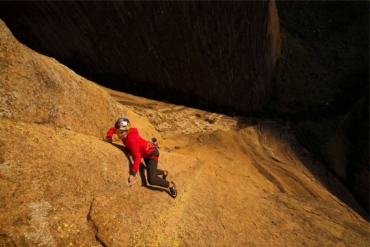In 2021, a piece of Canadian mountain history went up for sale — six pieces of it, to be exact. But the listing set off alarms among local historical preservationists.
Sick of the ski lodge? Now, you can buy the six Swiss chalet-style houses of the Edelweiss Village in the Canadian Rockies. The six homes housed a retinue of world-class Swiss alpinists who climbed and guided prolifically in the area in the early 1900s.
Built between 1910 and 1912, the houses come as a lot on approximately 50 acres outside Golden, British Columbia. And the asking price is $2.3 million.
The homes are a few miles outside of Golden, a ski town that supports excellent backcountry skiing, mountaineering, and hiking, and is home to Kicking Horse Ski Resort.
However, a museum in Golden raised concerns that selling the property amounts to abandoning history. The resulting alarm caused a Swiss historical preservation society to get involved.
Edelweiss Village Property Details
Listing agent RE/MAX reports the historic buildings all have updated plumbing, heating, and electrical fixtures.
Oil furnaces installed in the early 2000s have also been updated, but the original woodwork has not. The characteristic chalet-style flourishes and original fir plank floors (albeit awaiting restoration under carpet) remain.
The Canadian Legacy of Swiss Mountain Guides
 The six mountain guides who first lived in the homes are legendary on a basis that approaches worldwide renown. The climbers were standouts among an early 1900s mountain culture in western Canada that the Swiss decisively led.
The six mountain guides who first lived in the homes are legendary on a basis that approaches worldwide renown. The climbers were standouts among an early 1900s mountain culture in western Canada that the Swiss decisively led.
Numerous first ascents of 10,000-foot peaks in the era belonged to Swiss climbers. The six men who first lived in Edelweiss Village built such strong reputations that locals named surrounding peaks after five of them.
They broke into the business in a way familiar to many, if not all, mountain guides — as itinerant workers who lived in the area during climbing season. Travel was difficult at the time, though. After a few seasons, they found they missed their families back in Switzerland.
It’s hard to overemphasize the following fact: The Canadian Pacific Railway considered them so important to its travel business that they built a house for each of them.
Edelweiss Village Fails to Launch
These aren’t just any houses, either. Clearly, the railway company courted the men with buildings that appeared opulent and catered to their home aesthetics.

For the six Edelweiss Village residents, their daily grind was business as usual. “In Switzerland, we were just normal people,” Ed Feuz Jr., one of the guides, said. “In London and Canada, we were curiosities.”
Despite the spectacle, the village never really took off. When the guides moved in in 1912, the hillside location proved to be too far from Golden for many people, including children, to make the trek consistently. And the houses themselves didn’t make a great impression; they were sweltering in the summer and drafty in the winter.

Gradually, the guides moved their families into town. Over the years, their descendants helped maintain the abandoned properties. When they showed up on the market, the Golden Museum worried that history was at stake.
Preservation Efforts Hit Funding Roadblock, Listing Remains Open
The concern, along with a documentary short, prompted Johann Roduit to get involved. Roduit works with the Council of the Swiss Abroad, which advocates for Swiss cultural heritage worldwide.
In Roduit’s virtual panel discussion, local stakeholders weighed in on the chalets’ future. Part of the problem was money. Historically preserving the buildings or opening them to the public, as Golden Museum Director Brittany Newman advocated for, would take a lot of restoration work.
“It is difficult, and also frustrating, to see that this piece of history cannot be saved because of a lack of money,” Newman said.
The group hoped that increasing tourism could draw attention to the chalets and spur interest in preserving them.
For the last year, the Edelweiss Village has remained on the block. Whoever buys the one-of-a-kind lot will need deep pockets to close the deal, and even deeper ones if they plan to restore it.
In the listing, some houses look ready for move-in. But others show signs of long abandonment, like boarded-up windows and saggy deck railings.
On the other hand, it’s not every day you can buy a house once owned by someone with a mountain named after them. Let alone six.










